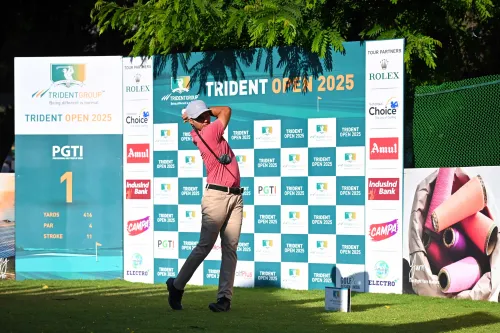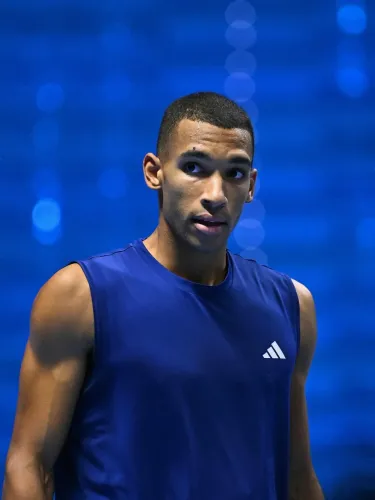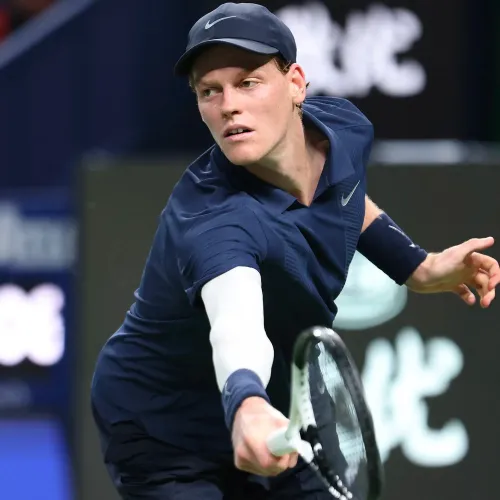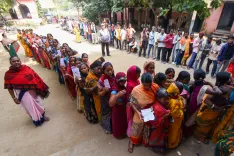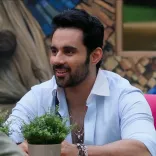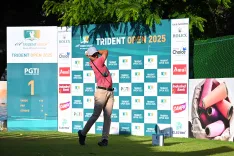Rahi Sarnobat Discusses Her Struggle with Neuropathic Pain Syndrome
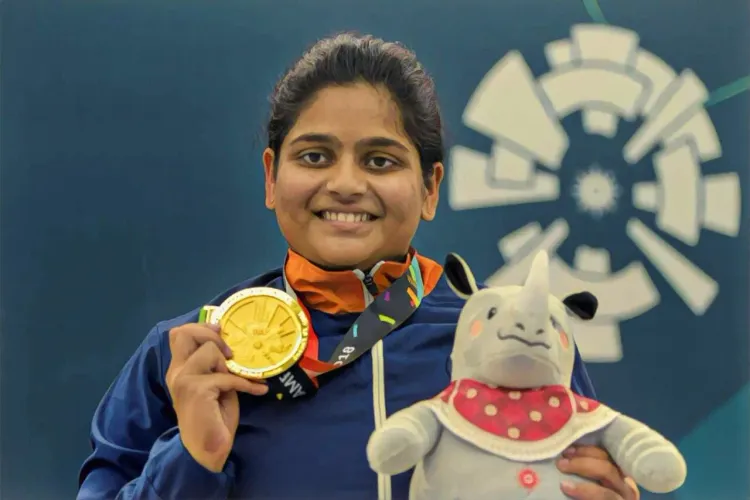
Synopsis
Key Takeaways
- Rahi Sarnobat shares her experience with neuropathic pain syndrome.
- She emphasizes the importance of personal journeys in comebacks.
- Her return to shooting was driven by a desire for a normal life.
- Rahi's gold medal at the National Games highlights her resilience.
- She aims to inspire others through her journey.
New Delhi, April 4 (NationPress) Rahi Sarnobat, a two-time Olympian pistol shooter, has made her return to the sport at this year's National Games in Dehradun following a significant health challenge. She candidly discussed her struggles with neuropathic pain syndrome and her renewed focus on her dreams of winning an Olympic medal.
The 34-year-old clinched the gold in the women's 25m air pistol event at the National Games.
Rahi's health issues began in 2022 while she was preparing for the national camp for the World Championships. She experienced severe hot flashes and nerve pain. After enduring weeks of excruciating sensations throughout her body, Rahi found herself bedridden, struggling to obtain a diagnosis.
“We were unsure which specialists to consult. We conducted ECGs, cardiovascular tests, and routine check-ups - all yielded normal results. Yet, I felt miserable. My neck pain became so severe I could hardly lie down and had to sleep sitting up for months. My medical team recommended seeing a neurologist,” Rahi shared during her interview on the House of Glory podcast.
After extensive neurological assessments, Rahi was diagnosed with neuropathic pain. “This syndrome lacks a consistent pattern and treatment protocol; it varies based on each individual’s medical history, making it even more terrifying,” she explained.
“For months, I was sleeping 17 to 20 hours a day, merely staring at the ceiling. I could not lead a normal life and was filled with anxiety due to the uncertainty of my condition,” she added.
This wasn’t the first time Rahi faced a comeback in her career. In 2014, she suffered a freak hairline fracture in her shooting arm's elbow, requiring seven months for recovery and additional time before she could shoot again.
She returned to the sport, winning gold at the 2018 Asian Games and competing in her second Olympics in Tokyo in 2021. Following her recent comeback, she triumphed in a close contest against fellow shooter Simranpreet Kaur at the National Games.
However, Rahi noted that each comeback is distinct, stating, “I believe comebacks are deeply personal experiences. The journey during the Rio Olympics was different. I faced a common injury and underwent a standard treatment regimen, which provided a clear path.”
“This time, my focus wasn’t on returning to competition; it was about returning to life. I aimed to lead a healthy, normal existence,” she articulated.
The road to recovery was challenging. “After several months, my neurologist advised me to start physiotherapy despite the pain. My initial exercise was simply sitting for 20 minutes to watch a TV show. I struggled with fatigue even for that. My physiotherapist dedicated hours to work with me each day,” she recounted.
Rahi's recovery journey imparted significant lessons. She believes she has transformed into a different athlete, now competing not just for herself but for her teammates as well.
“I feel like a new athlete. I doubt I could have endured such an emotionally destructive phase as I did during this pain. It was an incredibly challenging and depressing time. Shooting was far from my thoughts. I prayed for this moment, and now I am living it,” she reflected.
“Having resumed shooting, my goal is to concentrate on myself and my supportive team. I recognize I possess numerous untapped abilities and potential. This dream has been ingrained in me for a purpose. It’s time to give myself another chance. This isn’t about proving anything to anyone; I feel braver now, with nothing to lose. I want to be remembered as someone who made a difference,” she concluded.

